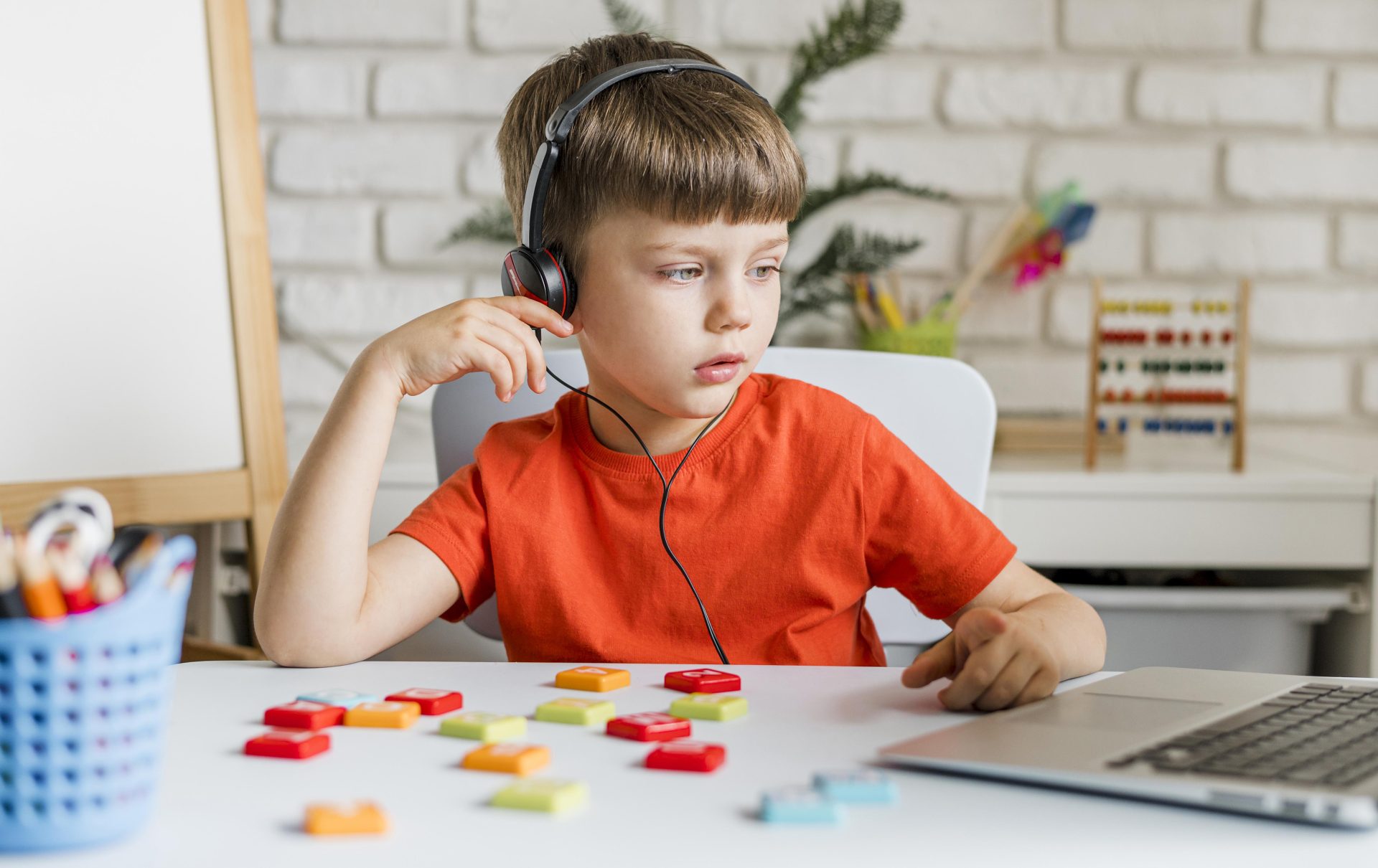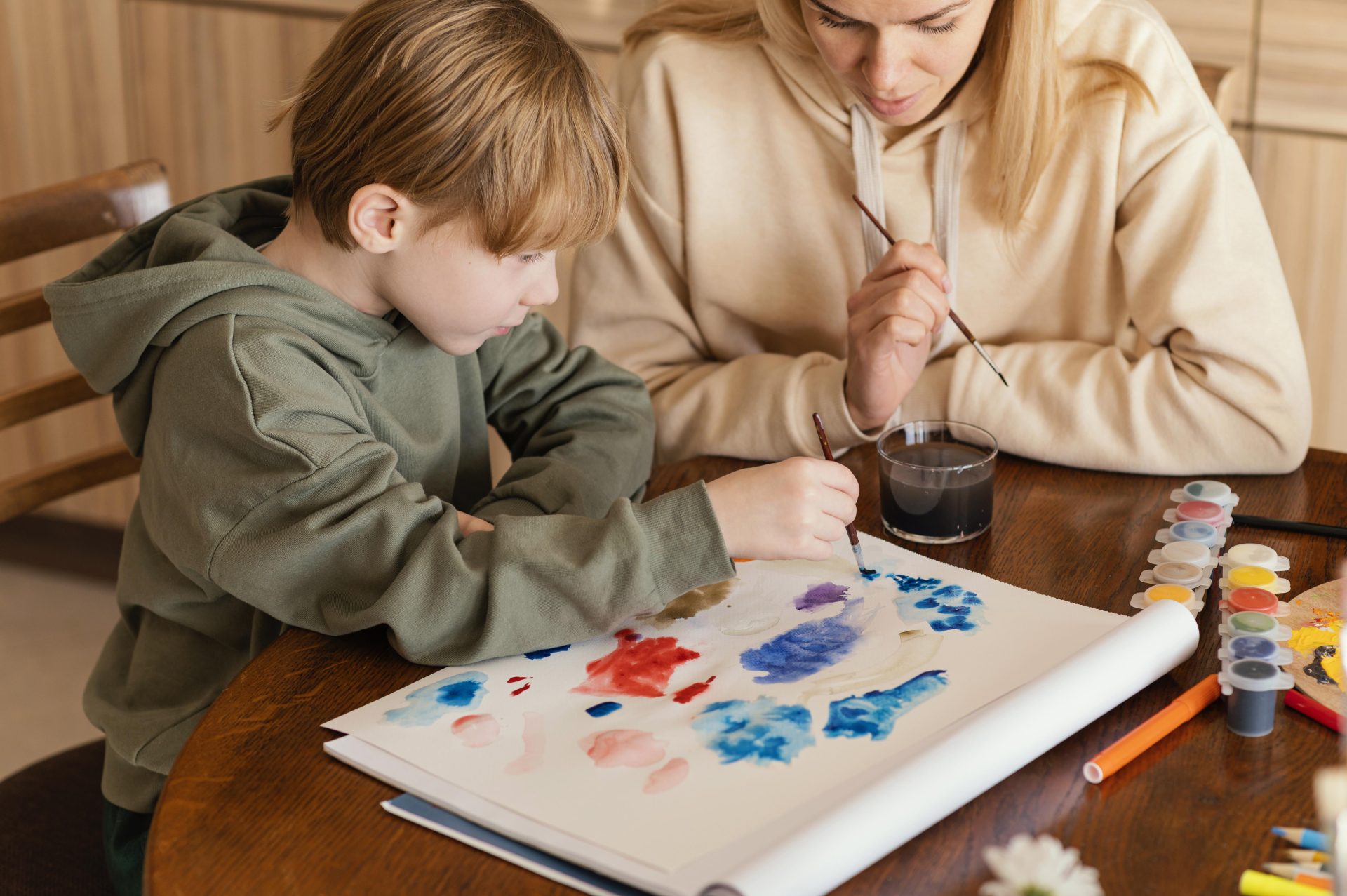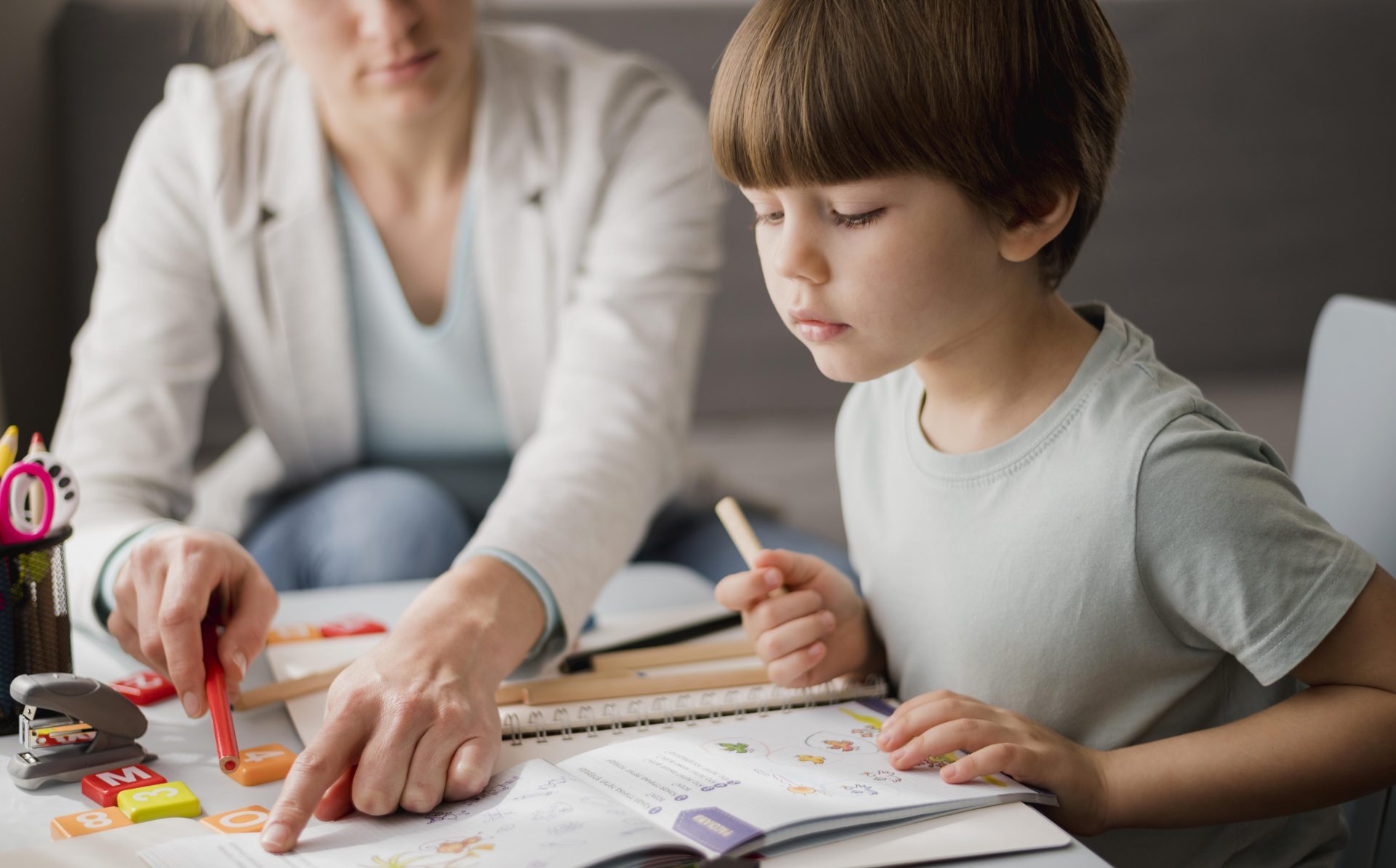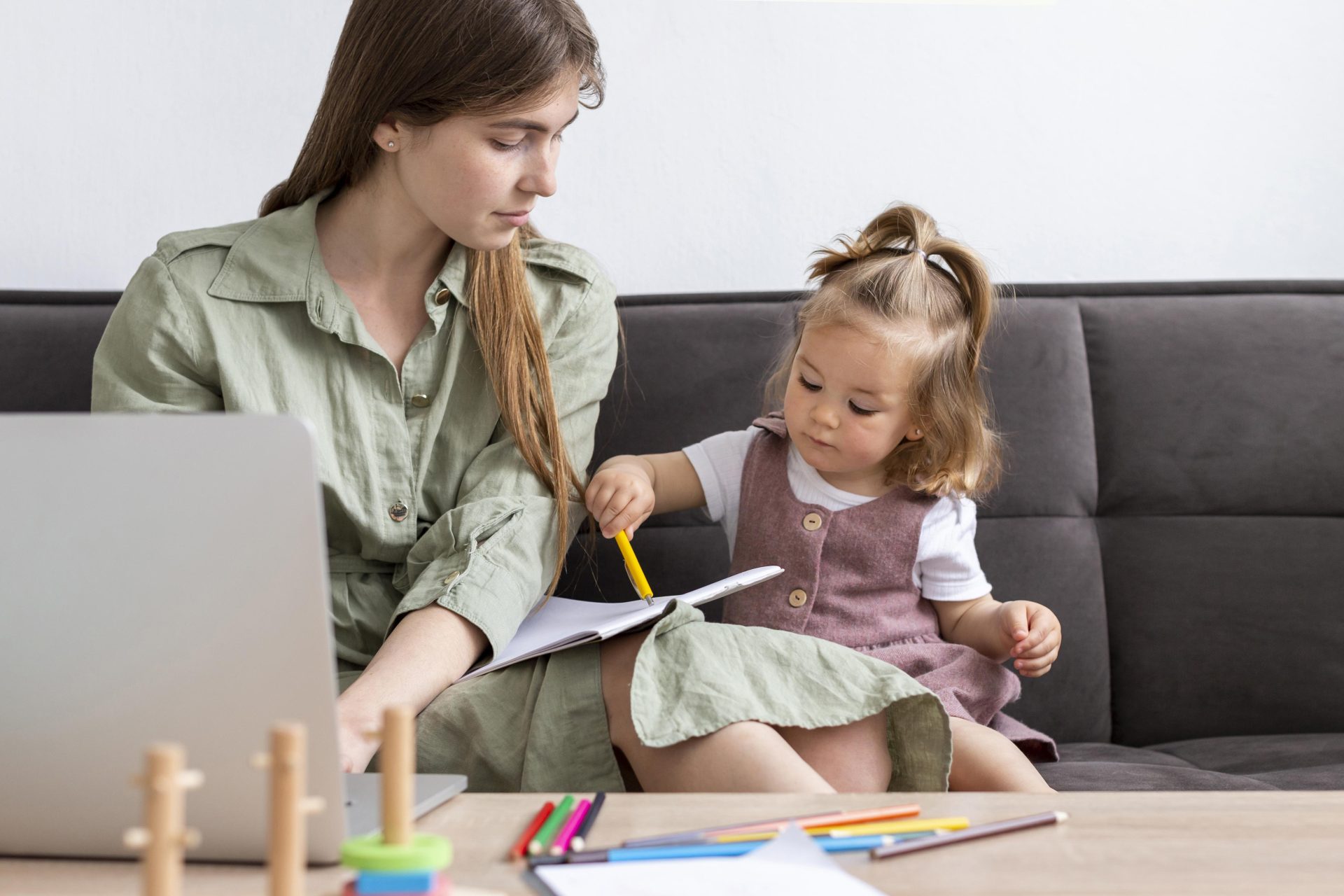Contents
- 1 Core Components of Preschool Curriculum
- 2 Language and Literacy Development
- 3 Mathematics
- 4 Science
- 5 Arts
- 6 Social and Emotional Skills
- 7 Physical Health
- 8 Creative Expression
- 9 Breakdown of Daily Lessons and Activities
- 10 Language and Literacy in Preschools
- 11 Integrating Mathematics in Daily Learning
- 12 Music and Movement
- 13 Enhancing Creativity and Sensory Skills
- 14 Importance of Sensory Exploration
- 15 Evaluating the Impact of the Preschool Curriculum
- 16 Check out Legacy Online School programs to find what you need:
What is a preschool curriculum guide? A preschool curriculum guide is a schedule done for preschoolers and what they will be studying during their preschool program.
Core Components of Preschool Curriculum

Mari Rege and her team has been diving into their research “The Effects of a Structured Curriculum on Preschool Effectiveness”, writing:
“[…] detailed age-appropriate curricular foci that intentionally and systematically target school readiness skills through play-based activities, along with teacher training, are key determinants of child development in preschool.”
A comprehensive preschool program guide must include subjects like language, math, science, arts, social skills, emotional development, and physical well being alongside creativity. It is essential for the well-rounded development of any child, especially at such a young age. Those subjects are the fundamentals of a child’s future and the essence for the developmental stage. Success of the subjects does not rely solely on covering the fundamental subjects because teachers must help children establish a groundwork for their academic pursuits and create group activities that will be engaging for the young generation. Group activities can include group discussions during circle time, artistic or sensory play, outdoor play opportunities and structured team activities.
Parents should prioritize a selective program that emphasizes the play-based learning experience since it will seamlessly integrate subjects like language development, literacy skills practice, mathematical concepts and social emotional learning opportunities. Families must also ensure that the chosen curriculum adheres to childhood educational standards in their region and has backed up research to underline their readiness for kindergarten.
Language and Literacy Development
A good preschool curriculum must support language and literacy skills in a variety of ways by including activities such as storytelling, reading books, singing songs, and engaging in conversations. These activities are crucial because they help kids develop strong language skills and lay the foundation for future reading and writing coherency.
Mathematics
Mathematics lays the foundation for problem-solving, logical reasoning, and critical thinking. Math includes concepts such as counting, patterns, shapes, and measurements. These concepts are introduced through engaging activities that promote exploration and discovery by adding math to daily activities. Children develop an early sense of math principles in a fun and interactive way through daily activities teachers engage them in.
Science
Science is all about curiosity and discovery where the preschool curriculum must include opportunities for children to explore the world around them through hands-on experiments, nature walks, and sensory activities. These opportunities help them learn to appreciate science early by fostering their natural curiosity.
Arts
Creative expression through art plays a crucial role in preschool education because it helps children express themselves, enhances their fine motor skills and creativity. Painting, drawing, sculpting, and dramatic play are wonderful ways to expose kids to various art forms and encourage imagination and self-expression.
Social and Emotional Skills
The key aspects of social-emotional development are effective communication, building friendships, and managing emotions. A well-rounded preschool curriculum incorporates activities that promote empathy, cooperation, self-regulation, and conflict resolution because they help children learn healthy social interactions and emotional intelligence.
Physical Health
Physical development helps children build gross motor skills through running, jumping, and climbing. These skills are emphasized alongside fine motor skills such as holding a pencil or buttoning a shirt. The curriculum must include outdoor playtime, movement activities, and healthy habits to build physical well-being from an early age.
Creative Expression
Imaginative plays, storytelling, music, dance, and role-playing nurtures children’s creativity and ignites their imagination. Additionally, these experiences help kids develop cognitive abilities by engaging them in problem-solving scenarios and promoting divergent thinking.

A comprehensive preschool curriculum includes diverse learning domains to nurture the development of young kids. The curriculum is tailored to their ages and stage to cover cognitive, social, emotional, and physical domains.
Breakdown of Daily Lessons and Activities

Daily activities offer learning opportunities outside of the classroom where tasks are always aimed at nurturing aspects of children’s growth. The significance of these activities is shown by contributing to a child’s development. There are several types of activities that preschool curriculum can have to help children develop listed below.
| Circle Time |
|
| Hands On Activities |
|
| Outdoor Play |
|
| Guided Play |
|
Legacy Online School provides a breakdown of their daily lessons and activities in their kindergarten online curriculum! Check it out now to see how programs should show their activities online by clicking this link.
Language and Literacy in Preschools

Nurturing language and literacy skills is essential for young kids because it helps them have a solid foundation in communication and reading. Kids will use this foundation throughout their learning years and beyond from expanding their vocabulary to identifying letters. Language and literacy shape a child’s capacity to understand and communicate effectively.
Storytelling helps children with their imaginations and assists them in interpreting the world around them. Kids grasp the structure of language and enhance their listening skills through storytelling. It becomes an experience for their minds.
Early exposure to a wide range of words assists with a child’s ability to communicate effectively as vocabulary development is a crucial focus area in literacy. There are different ways to develop a kid’s vocabulary like word walls, picture cards, and labeling of objects to facilitate a continuous expansion of the vocabulary.
Phonological awareness is an understanding that words are made up of separate sounds. Phonological awareness becomes another essential part of the preschool curriculum, which must involve fun games and exercises to help children find and change phonemes. This awareness helps kids build groundwork for reading comprehension.
Alphabet recognition and early writing skills are introduced gradually in the preschool curriculum to help children become familiar with the shapes and sounds of letters. Kids engage with those skills through activities that turn learning into play like being encouraged to try forming letters. These activities set the stage for future writing.
Integrating Mathematics in Daily Learning

Preschoolers grasp math concepts both through traditional methods and through hands-on play. Integration of mathematics in daily learning happens when teachers include engaging games that have mathematical subjects at their core.
Games can include constructing towers with blocks, counting crackers during snack time, singing songs with numbers, and engaging in games that involve arranging shapes. Games like “I Spy” encourage children to identify different shapes or colors in the environment which develops observation skills and promotes basic mathematical concepts. Hands-on activities like pouring water lay the groundwork for understanding volume and capacity since it involves moving water from one container to another.
Rachel Parker and her team studied the influence of gamified content for young children, stating below.
“[…] play is hugely influential on child development in fostering speech development, cognitive processing, self-awareness and self-regulation.”
– Rachel Parker et al. in their research “Learning Through Play at School”
Kids can understand high-quality math materials by having teachers extend beyond counting. The progress can happen with early introduction to numeracy skills into daily activities that include several possibilities below.
- Counting: Identifying how many objects are present.
- Sorting: Recognizing similarities and differences between objects.
- Patterning: Grasping repetitive arrangements in colors, shapes, and actions.
- Understanding Of Shapes: Getting acquainted with basic geometry by identifying shapes present in their surroundings.
Preschool curriculum additionally includes an introduction to simple mathematical concepts such as “more” or “less,” “same” or “different” to lay down crucial groundwork for future understanding of mathematics.
Music and Movement
Music helps children memorize concepts faster. Music’s catchy nature like the song about ABCs or counting songs helps kids become familiar with the alphabet or numbers in an engaging way. Moving and dancing assists children with development of spatial awareness alongside understanding of patterns and sequences.
Enhancing Creativity and Sensory Skills
Creative experiences like playing with playdough and painting with fingers are just a small number of possibilities that can help children develop their creativity. Preschools add these creativity activities to enhance children’s creativity to help them stimulate and challenge their minds to shape their cognitive abilities.
Engaging in exploration through art forms and sensory activities empowers children to express themselves without constraints and aids in refining fine motor skills. These activities encourage development of sensory discovery and neural connections for overall development.
Imaginative plays assist children with developing problem-solving skills, divergent thinking, spatial reasoning, and social interactions while also boosting creativity and self-expression. For example, divergent thinking is key for success in STEM fields and is not just a skill needed in creative fields. These early experiences are a crucial base for future academic work.
Music and movement activities instill a love for rhythm and improves coordination, balance, and spatial awareness. The rhythmic activities stimulate brain development by forming connections between different parts of the brain while enhancing memory skills
Importance of Sensory Exploration
Sensory bins and nature exploration introduce children to various textures, smells, colors, tastes, and sounds. These engaging experiences allow kids to process information about the world around them to help build language skills and develop their curiosity about the world.
Evaluating the Impact of the Preschool Curriculum

Families must understand how major the impact of the program is on a child’s development. There are many factors that parents must look into to ensure that the preschool curriculum meets their expectations and helps their child develop in a well-rounded way. One of the crucial factors includes examining children’s advancements in areas like language and literacy, math, physical growth, and cognitive abilities since these areas show how well the curriculum meets kids’ needs and prepares them for the future.
Teachers’ feedback about children’s development is important but so is parents’ role in assessing the effects of the curriculum. Feedbacks from parents focus on observing children in their interactions with other peers and learning materials. Their behavior and ability to apply knowledge in real life situations are also included.
It is essential to evaluate the preschool program. Evaluating the impact of a preschool curriculum is vital not only for ensuring its effectiveness but also for identifying areas that may need improvement or modification in the future. Evaluation allows for tailoring the curriculum to better meet young learners’ needs and helps with evidence-based decision-making to improve the program.
Continuous evaluation allows for dynamic adjustments to preschool programs. It ensures they stay effective at fostering early childhood development. It is crucial for shaping well-rounded children who are equipped with essential skills for lifelong learning.
Check out Legacy Online School programs to find what you need:
- Legacy Online School’s elementary school program sets the bar high. This is a quality education. We strive to ignite curiosity. We also strive to foster creativity. We offer a strong curriculum. We are assisted in this by qualified educators.
- Legacy Online Middle School provides digital education. It is designed for middle school students. The school prides itself on offering live online classes taught by certified teachers. The classes are online and interactive.
- Legacy Online High School is a unique method of online learning carefully designed for high school students. It combines synchronous learning, a wide range of pedagogical methods, and an emphasis on accessibility.
Legacy Online School offers the best curriculum for you and your child to get the best online educational experience.
Our rigorous curriculum ensures that graduates are well prepared for universities and workplaces around the world. In addition, our vibrant virtual clubs connect students all around the world.





